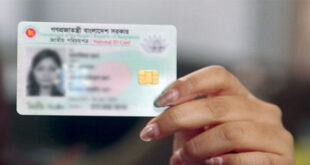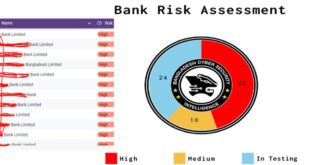The technology change has brought challenges to all sectors. Many sectors are struggling to adapt and some are facing a crisis. Telecom operators are also affected as people are using talktime and SMS less. The usage has decreased significantly in the past year.
People nowadays prefer using data-based communication applications like Messenger, WhatsApp, Skype, Imo, Zoom, Meet, and LinkedIn. These apps make it easy to communicate through text, voice calls, and sharing photos and videos. Additionally, encrypted apps also help users save money. Consequently, users are choosing these apps over traditional talktime and SMS.
According to BTRC data, telecom operators in Bangladesh sold 15,533 crore minutes of ‘on-net call minutes’ in the fiscal year 2022-23, which is 841 crore 51 lakh more than the previous year’s sales of 16 thousand 374 crore minutes. In comparison to the financial year 2020-21, there was a decrease of 424 crore 3 lakh minutes, as customers used 16 thousand 799 million minutes in 2021-22.
The use of SMS has decreased. In FY 2022-23, 1,890,660,000 SMS were used internally by customers, which is a reduction from the previous year’s 2,599,620,000 SMS. This means 708,950,000 fewer SMS were used in one financial year. In FY 2020-21, there were 3,039,580,000 SMS exchanged, with 439,950,000 more SMS than the previous year.
In the last three financial years, the number of internet users has increased. In the financial year 2022-23, there were 129.4 million internet users, compared to 126.2 million in 2021-22 and 120.9 million in 2020-21.
Operators say that out of 18 crore customers in the country, 12 crore customers use smartphones and mobile data. As a result, one-third of the customers are still out of mobile internet usage. Compared to the amount of their investment, the revenue is coming less.
General Secretary Lt. Colonel Mohammad Zulfiqar (Retd) said that mobile talk time is decreasing while the use of mobile data is increasing, not only in Bangladesh but worldwide. This is mainly due to the growing use of messenger apps, which is decreasing mobile calls and messages. Operators are investing in their networks due to the increasing demand for mobile internet, despite the relatively low revenue compared to the investment.
Technological change means developing new telecom technologies. Operators invest based on customer demand and discussions with the government and regulators. There’s potential to increase smartphone use in Bangladesh, which has some of the lowest mobile and internet prices. High taxation hinders sector progress and the mobile ecosystem is complex.
Operators’ officials reported that offline talktime and SMS usage has been declining for years, prompting them to adopt new strategies to stay profitable. They are introducing new apps, partnering with online platforms, and sharing their infrastructure and services with MFS companies to maintain their business position.
A Robi Axiata Limited official said that ten years ago, telecom companies relied mainly on talk time and SMS for revenue. But now, they are diversifying by introducing new services like OTT platforms, online shops, and digital services to stay competitive in the market.
Director of Information Technology Institute of Dhaka University Professor Dr. BM Moinul Hossain said, ‘The behavior of mobile customers is changing all over the world. People are communicating through different apps using data instead of talktime. Operators have to adapt themselves to this changed behavior.
Banglalink Chief Corporate and Regulatory Affairs Officer Taimur Rahman stated that their digital platforms, MyBL and Toffee, are very popular. They believe that by offering quality mobile internet and digital services, they can contribute to the country’s technological development.
 InfoSecBulletin Cybersecurity for mankind
InfoSecBulletin Cybersecurity for mankind














